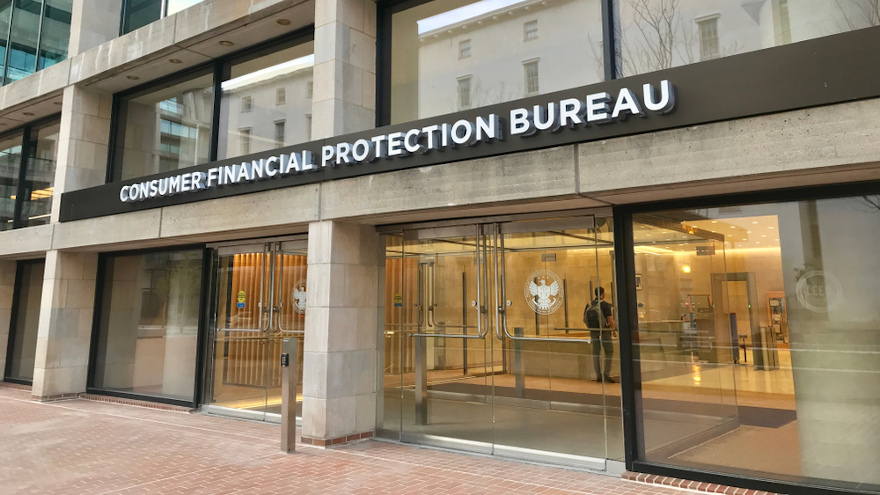From the editor: Dramatic change in tone at the CFPB

Image by DCStockPhotography / Shutterstock.com
By subscribing, you agree to receive communications from Auto Remarketing and our partners in accordance with our Privacy Policy. We may share your information with select partners and sponsors who may contact you about their products and services. You may unsubscribe at any time.
Perhaps the most interesting news release ever distributed by the Consumer Financial Protection Bureau came into my view on Thursday, courtesy of a LinkedIn post by Hudson Cook partner Eric Johnson.
The news release wasn’t about a multi-million dollar penalty about to be absorbed by an auto-finance company, nor was it guidance for how underwriting or collections departments should function. Rather, the secondary headline of the release set the tone for what was contained in it, as it stated, “A small business complained about skyrocketing crime in Chicago, CFPB made their life hell.”
The matter originated in the mortgage industry five years ago when the bureau filed a lawsuit against Townstone Financial, a nonbank retail mortgage creditor based in Chicago for violations of the Equal Credit Opportunity Act (ECOA) and discriminating against applicants in credit transactions on the basis of race, color, national origin, or other prohibited bases.
At the time, the CFPB made allegations that, “Townstone engaged in illegal redlining by engaging in acts or practices that discouraged prospective applicants living in African-American neighborhoods in the Chicago MSA from applying to Townstone for mortgage loans, including by making discouraging statements during its weekly radio shows and podcasts through which it marketed its services.”
After what the regulator called “a thorough review,” the CFPB said on Thursday it is seeking to make Townstone whole by returning the six-figure penalty the company was forced to pay.
In this week’s news release, the CFPB said, “the process was the punishment.”
Subscribe to Auto Remarketing to stay informed and stay ahead.
By subscribing, you agree to receive communications from Auto Remarketing and our partners in accordance with our Privacy Policy. We may share your information with select partners and sponsors who may contact you about their products and services. You may unsubscribe at any time.
The bureau continued in the news release, “in addition to an egregious fine. CFPB lawyers wrote in an internal memo that Townstone could be penalized $28,906 per day for four years, a total of $42,202,760 for alleged violations of civil rights law. All for 16 minutes of radio banter that were not racial in nature. CFPB now seeks to right this wrong and is asking the court to refund the monetary penalty that the bureau imposed on Townstone and to dismiss the case.”
Two top bureau officials elaborated about the situation.
“CFPB abused its power, used radical ‘equity’ arguments to tag Townstone as racist with zero evidence, and spent years persecuting and extorting them — all to further the goal of mandating DEI in lending via their regulation by enforcement tactics. The more we uncover at CFPB, the more we see how this agency was weaponized against targeted Americans,” acting director Russ Vought said.
“This was a flagrant misuse of government resources to destroy a small business that did nothing wrong. For the crime of protected political speech, this firm was targeted and harassed for years by this rogue agency. We are righting this wrong and protecting the First Amendment,” senior advisor Dan Bishop said.
After reading that news release, it immediately came to my mind a similar sounding situation that unfolded in automotive.
In January 2016, the CFPB took an enforcement action against Herbies Auto Sales, an operator in Greeley, Colo., for what the bureau deemed to be abusive financing schemes, hiding auto finance charges and misleading consumers.
The CFPB said Herbies had to pay $700,000 in restitution to harmed consumers, with a suspended civil penalty of $100,000.
The bureau contended that Herbies unlawfully advertised a “misleadingly low” 9.99% annual percentage rate without disclosing a required warranty, a payment reminder device and other credit costs as finance charges. What officials described as a “ruse” helped Herbies convince consumers that they would get the 9.99% APR instead of the much higher rate actually charged.
Soon after the CFPB action, Johnson’s former colleagues at Hudson Cook wrote a reaction analysis published by Cherokee Media Group. Allen Denson and Joel Winston explained at that time:
The CFPB’s lawsuit claimed that Herbies violated the Truth in Lending Act and Regulation Z by not including in the APR and finance charge calculations, the cost of a warranty and a payment reminder device that it required credit customers, but not cash customers, to purchase. This allegation, by itself, is unremarkable. Compliance attorneys have long advised dealers that charges imposed only on credit customers may be deemed “hidden finance charges” under TILA.
Denson and Winston later added:
Many (ourselves included) will take issue with the CFPB’s targeting a small BHPH dealer for practices that are widespread throughout the industry. This is especially true in that those practices were not intended to, and in fact did not, harm consumers.
As you likely guessed, Herbies soon went out of business after the enforcement action from the CFPB.
But I wonder if the operators saw this week’s news release and were surprised by the tone of the bureau associated with its actions against Townstone Financial.
“To reiterate, no one came forward to complain about Townstone, they were ‘drawn out of hat’ by a computer model run by DEI-driven CFPB bureaucrats,” the bureau said in Thursday’s news release.
Perhaps a statute of limitations has expired that might keep the operators of Herbies from recouping any funds. After all, nearly 10 years is an eternity in the car business that’s often focused on monthly and quarterly goals.
What seems clear, however, is that things are dramatically different at the CFPB. Let’s all see what unfolds next.
Nick Zulovich is senior editor of Cherokee Media Group and can be reached at [email protected].


